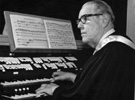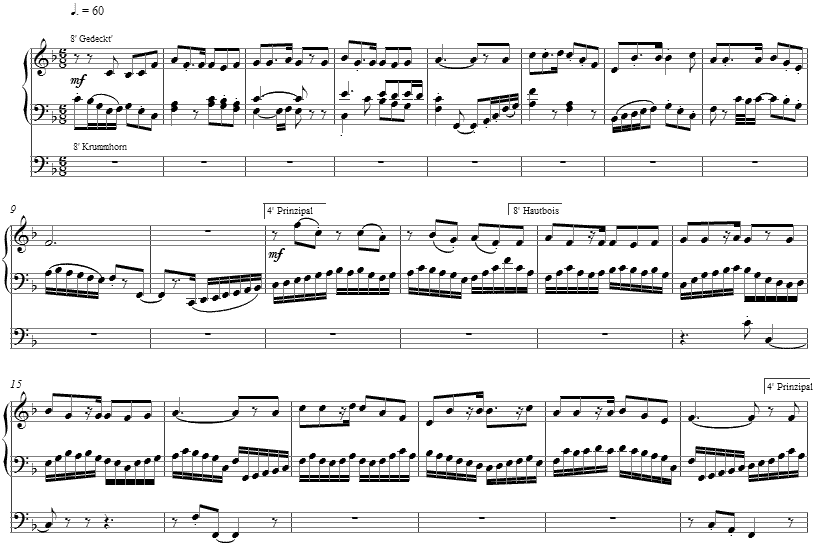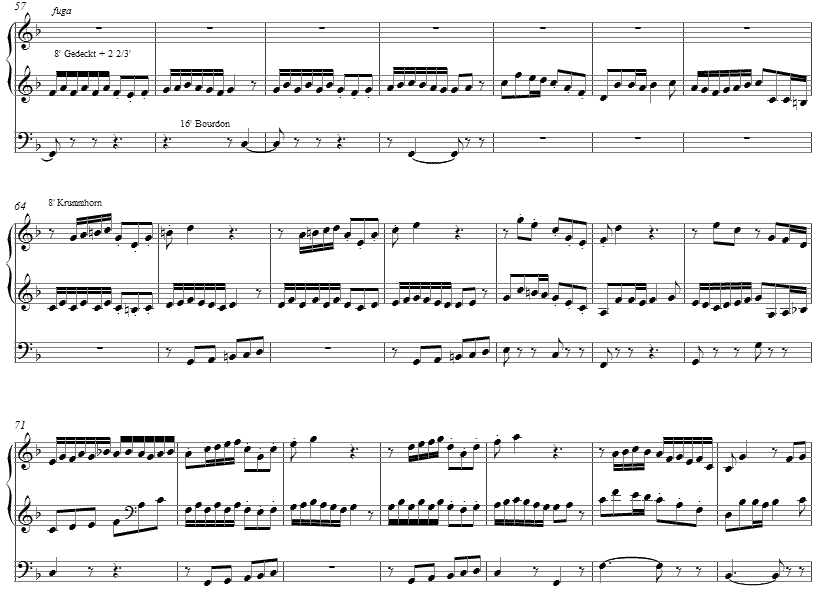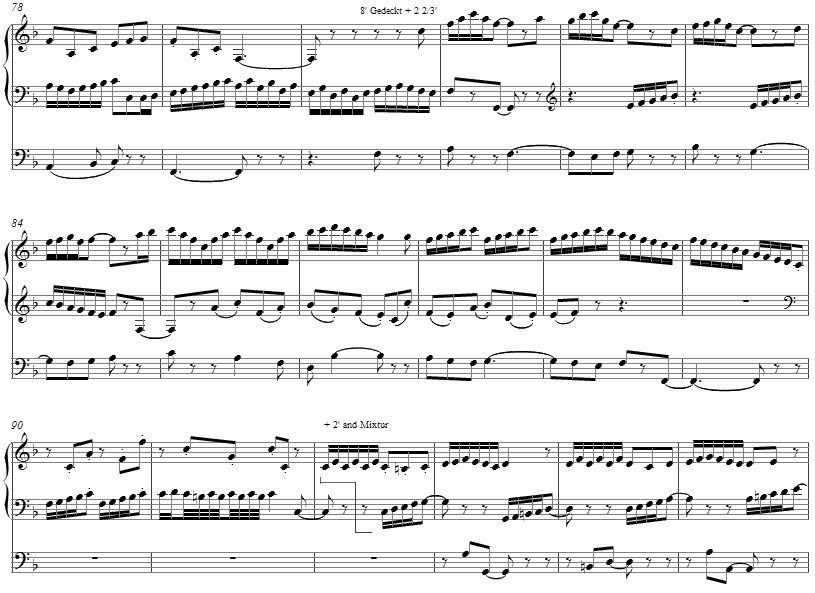Music and Texts of GARY BACHLUND
Vocal Music | Piano | Organ | Chamber Music | Orchestral | Articles and Commentary | Poems and Stories | Miscellany | FAQs
Chorale Variations and Fugue on "Men varföre gråta" - (2007)
for organ
in memoriam
Russell Nathaniel Chall
My parents were the first born of Swedish immigrants to the United States. In the home, one heard Swedish as well as English, and this lingered as a living "second" language among that generation. My parents were musicians; my father a choral conductor and my mother a pianist and an organist as well as voice teacher. They were involved in the southern California area in church and temple music, as well as the local chapter of the American Guild of Organists, until my father's death and my mother's necessary change to a career teaching Spanish and French.
My maternal grandmother's brother whom I never met, for he lived most of his life in upstate New York, was also an organist. By happenstance, my distant cousins, granddaughters of my great uncle, wrote me, and we began to discuss something of this side of the family history previously unknown to me.
This great uncle to me was Russell Nathaniel Chall, born in 1907 in Ridgway, Pennsylvania; he passed away in 2003 in Jamestown, NY. The family name was changed, as my grandmother, Anna, was the first immigrant to come, adopting the Americanized Chall to replace the family name, Käll. This original name reflects a the name of the parish where our forefathers were born. They lived on a farm in the parish called Bränningen. Käll is actually a military name used for the first time by Sven Johansson Käll, grandfather to Russel Chall. Soldiers were given a new last name, often based on where they lived. It is from Källero, Sweden, that this family emigrated to America.
The story is told that at age 14 Russell Chall was the pianist at the Bradford, Pennsylvania Covenant church, and we believe he taught himself organ, as had my own mother, his niece. He served as organist at Zion Covenant Church in Jamestown, New York, from 1948 to 1979. It is said he was asked to substitute one Sunday in 1948, and then remained there until retiring at 1979. He was involved in the lumber business, was an accomplished wood worker as well, and helped form the Jamestown Civic Orchestra. The story goes that while in Chautauqua, New York, he recognized Mischa Mischakoff, the concertmaster under Toscanini from the NBC Symphony. He introduced himself, and asked if Mischakoff would play in an orchestra if he started one. The answer was yes, and as a result, Toscanni's concertmaster was often guest in the Chall household during their concerts together, for which Russell Chall also played cello as well as sometimes accompanying Mischakoff at the piano.
Russell Chall
In hearing from Karin Anderson and Kris Bingham through this web site's postings, I was sent some hymns from a favorite hymnal used by many Swedish congregations in the early through middle of last century. I chose the melody from among several in the Covenant Book Concern publication. The composer of the melody itself is deemed "anonymous," though the original Swedish text was written by Nils Frykman in 1879. An English translation of the title poses the question, "Why Should I Be Anxious?" and the text's scansion is noted as an unusual 11.8.11.8. perhaps in keeping with the lilt of the language itself, which gives rationale to the melodic periodicity.
Frykman, the Käll and Svenson families and my paternal grandparents, the Backlunds and Nyströms, found their way to America seeking not only opportunity but freedom from the domination of what was once known as the "Swedish State Church." [ 1 ]
The melody is noted as "with movement, joyfully." Therefore I set this 6/8 theme in such a manner as to emphasize the light-hearted nature of the textual base as well as the lilt of the melody. After an initial statement, the variations are all underpinned by running scales and arpeggios in the left hand, as the melody is stated in the right hand and pedal. The theme itself begins with the last eighth note upbeat to measure 2, and carries through until measure 9. The various suggestions for registration point out the dialogue between the outer voices, while a softer flute stop accompanies with fluid scales.
The fugue subject adapts the melody with greater ornamentation, though the harmonic content remains the same, until continuing statements in the dominant sweetly evolve. The little countersubject ends humorously with a rising third (or sixth) recalling the lilt of Swedish as I heard it in the home.
A little episode of scales and arpeggios is underpinned by an unadorned simplification of the fugue subject in the pedal, before a return to the statement in the dominant.
Click
for an MP3 file of this complete work [ 3.9 MB ], 4' 10" duration.
The score is available as a free PDF download, though any major commercial performance or recording of the work is prohibited without prior arrangement with the composer. Click on the graphic below for this organ score.
Chorale Variations and Fugue on "Men varföre gråta"
NOTES
[ 1 ] In 1527 Sweden became a Lutheran country, and the church became a State church. The State church excluded all other denomination, and all had to accept to be registered by the State church in order to assure the required tithes be paid for clerical services.
As a result of the Church Law of 1686, records were kept in a rather strict fashion for all residents, and an Exit Permit, and that was also the custom, had to be arranged when someone emigrated. Swedish law - konventikelplakatet - from 1726 stood against what was called pietism and private sermons. This law was lifted only in 1858, enabling the so-called "free churches" to operate in parallel with the official Church of Sweden. In comparison to this strict historical stance over centuries, in the 1920s Archbishop Nathan Söderblom took a leading role in world ecumenism.
Full freedom of religion was legally introduced in Sweden only in 1952. The notion of freedom of religion -- among the traditional normative values in the United States -- is somewhat new in many European nations, and still evolving in its understandings and legal underpinnings.



